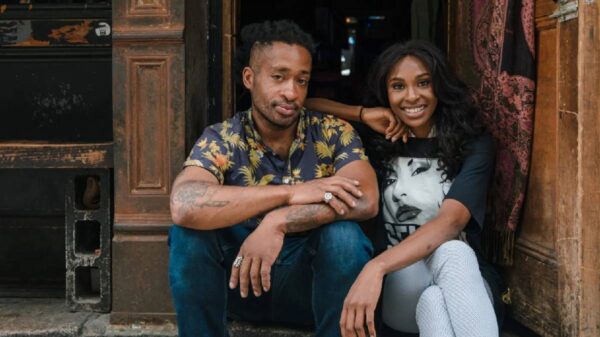By Malcolm Venable
BET
Reprinted – by Texas Metro News
https://www.bet.com/
Frustrated by systemic racism and a political climate steeped in chaos, more Black Americans are seeking refuge overseas. Expats share how life abroad offers peace, community, and a better quality of life—despite its challenges.
Westend61
Josephine Baker, James Baldwin, Nina Simone, Tina Turner—for generations, prominent Black American artists and thinkers have shared how leaving the U.S. to escape domestic racism allowed them to thrive and find peace. This isn’t a new conversation, but it has taken on renewed urgency since the re-election of that guy.
Relocation experts report a surge in inquiries from people considering a move abroad, and several celebrities have publicly declared their intentions to leave. Even before the 2024 election, a growing number of Black Americans, frustrated by the relentless onslaught of racism, police violence, and systemic mistreatment, had already sought refuge in Europe, Africa, and South America. With the current administration signaling a new era of chaos and blatantly racist policies, the number of Black Americans making plans to leave the U.S. has hit an all-time high. But what is life really like for Black Americans living abroad?
“I didn’t realize how stressful life in the United States was until I left,” says Suzanne Flowers, a Black woman in her early 50s from Chicago now living in Lisbon, Portugal. “I didn’t know how heavy it was until the weight lifted—it just fell away.” Flowers, a former tech executive who moved to Europe six years ago as a digital nomad, is one of many who report a profound sense of relief abroad. Research supports this, showing that the chronic stress Black Americans endure from racism directly impacts health. Flowers recalls a work trip to Switzerland that highlighted the stark contrast: a colleague suggested a short hike during a break. “I was thinking, ‘Is this a trail or someone’s backyard?’ And then I realized—even if it was someone’s backyard, no part of me was worried that they’d come out with a shotgun because I’m Black. At most, they’d come out and offer tea.” She pauses, choking up. “It was such a revelation. I’m not worried for my life here. Ever.”
Lisbon has become a popular destination for Black Americans, with its growing Black population and welcoming atmosphere. Other top spots include Mexico City, Accra in Ghana, and Panama City. Social media accounts dedicated to the Black expat experience illustrate how, wherever they go, Black Americans form vibrant communities—like the thriving network of Black women in Amsterdam.
Michael Robinson, who also lives in Lisbon, moved there in 2020 for work. Born in the U.K. and raised in upstate New York, he acknowledges that racism exists everywhere but points out key differences. “Racism is here, but the brand of white Christian nationalism in the U.S. is insidious,” he says. “Do I feel safer here? Absolutely. But I recognize the immense privilege of being a Black American with a U.S. passport.” Robinson notes that Black immigrants from African countries often face challenges like securing housing or healthcare that he, as an American, doesn’t encounter.
However, he advises prospective expats to prepare for cultural adjustments. “Small comforts we’re used to—like 24-hour convenience stores or finding someone to do your hair just right—aren’t the same. But we adapt. My wish for Black Americans abroad is to invest in Black businesses and support our own. There’s always an alternative provided by people of color.”
For many, the benefits of living abroad extend beyond escaping prejudice. Expats frequently cite better quality of life, lower costs of living, healthier food, and an absence of gun violence. Social safety nets in Europe, like universal healthcare and robust welfare systems, also provide a sense of security. Brandee Butler, who has lived in Europe since 2011, is now in Barcelona after stints in Brussels and Amsterdam. Recently laid off, she remains unworried. “I feel far less anxious here because society cares for you,” she explains. “Healthcare and education are seen as rights.” Married to a Spanish man, she says her experiences with racism have been minimal. “I get the occasional curious glance or outdated assumption, but nothing overtly racist. My quality of life is just too good to consider going back.”
Butler, like many others, has no plans to return to the U.S. after the 2024 election results. “Europeans have experienced dictators and wars in their recent history. They’ve seen it up close and know it can get worse. Why would I go back to that? Unless it was for an extraordinary opportunity, I’m here for the long haul.”
The consensus among these Black expats is clear: living abroad has its challenges, and racism isn’t completely absent, but the benefits far outweigh the drawbacks. As Robinson puts it, “To anyone considering the move—abso-freakin-lutely. Get the hell out.”










You must be logged in to post a comment Login